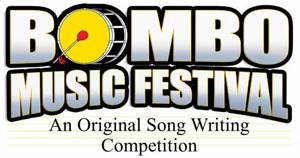KYIV, Ukraine — Ukrainian President Volodymyr Zelenskyy revealed that he and former U.S. President Donald Trump discussed crucial issues regarding air defense systems, sanctions on Russia, and a potential ceasefire between Kyiv and Moscow during an impromptu meeting at the Vatican, following Pope Francis’ funeral.
According to Zelenskyy’s statements released by his administration, the meeting was described as “the best meeting” the two leaders have ever had. Among the key topics discussed was a proposed 30-day ceasefire between Ukraine and Russia, which Zelenskyy and Trump agreed could be a constructive first step toward bringing an end to the ongoing war in Ukraine.
Zelenskyy stated that sanctions on Russia were also on the agenda, noting that Trump’s response to this issue was “very strong,” though he refrained from providing further details.
In addition, the two leaders discussed a significant agreement signed on Wednesday that aims to enhance bilateral cooperation on critical minerals. Zelenskyy emphasized the mutually beneficial nature of the deal, which would secure preferential access to Ukrainian minerals for the U.S. while facilitating investment in Ukraine’s reconstruction efforts.
“This deal will allow Ukraine to defend both future U.S. investments and its own territory and people,” Zelenskyy explained. He further mentioned that, at least initially, the funds generated from the deal would be reinvested into Ukraine, with the possibility of withdrawals considered only if certain conditions were met in the future.
The agreement also involves the creation of a fund to manage investments, with a supervisory board equally split between Ukrainian and U.S. appointees. The board will be responsible for selecting a director for the fund.
On the matter of air defenses, Zelenskyy stressed Ukraine’s continued need for more effective defense systems amid Russia’s ongoing invasion. He stated that he had shared Ukraine’s air defense needs with Trump, who responded positively but acknowledged the challenges involved in securing these systems.
Zelenskyy also discussed U.S. military aid, noting that $30 billion in military assistance allocated by the U.S. Congress for 2024 was expected to be delivered over the next two years. He hinted at the possibility of accelerating the delivery of aid for 2026, potentially tying it to the newly signed minerals agreement.
The minerals deal comes at a time of increasing frustration in Washington over the stalled peace talks between Kyiv and Moscow. While Kyiv demands an immediate and unconditional ceasefire for at least 30 days, Russian President Vladimir Putin has expressed a willingness to agree in principle but has highlighted the need for further negotiations.
In response to Moscow’s proposal for a three-day ceasefire around May 9 — Russia’s Victory Day — Zelenskyy insisted that Ukraine would only agree to a 30-day truce. He also raised concerns about the safety of foreign dignitaries in Moscow during the Victory Day celebrations, stating that Ukraine could not guarantee their safety in Russian territory.
Russian hardliner Dmitry Medvedev, however, responded with a stark warning, suggesting that Kyiv’s actions on May 9 could lead to dire consequences for Ukraine, implying the capital Kyiv might not survive if Ukraine were to attack Moscow.
As the situation remains fluid, the prospect of a 30-day ceasefire hangs in the balance, with both sides continuing to navigate the complex and tense geopolitical landscape.















